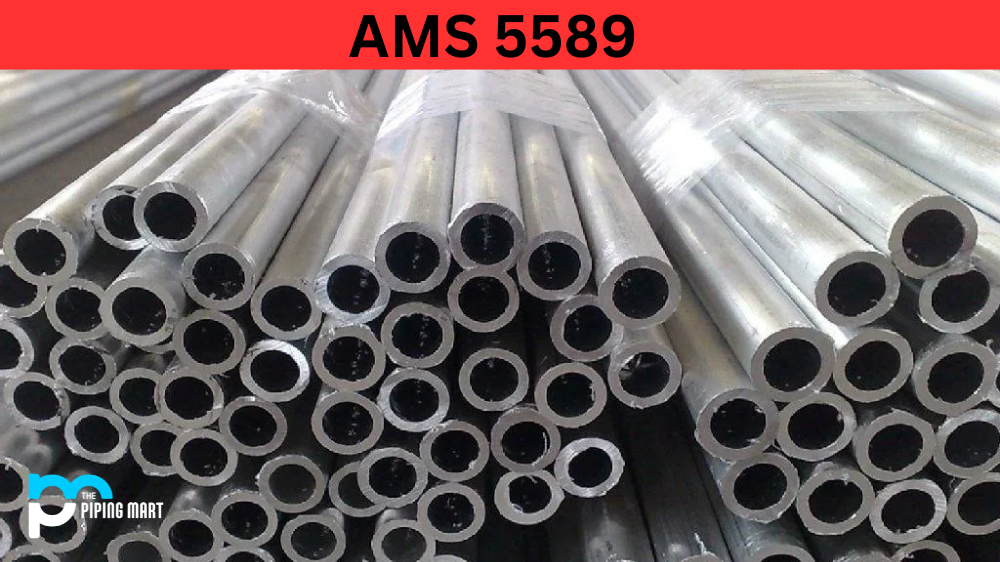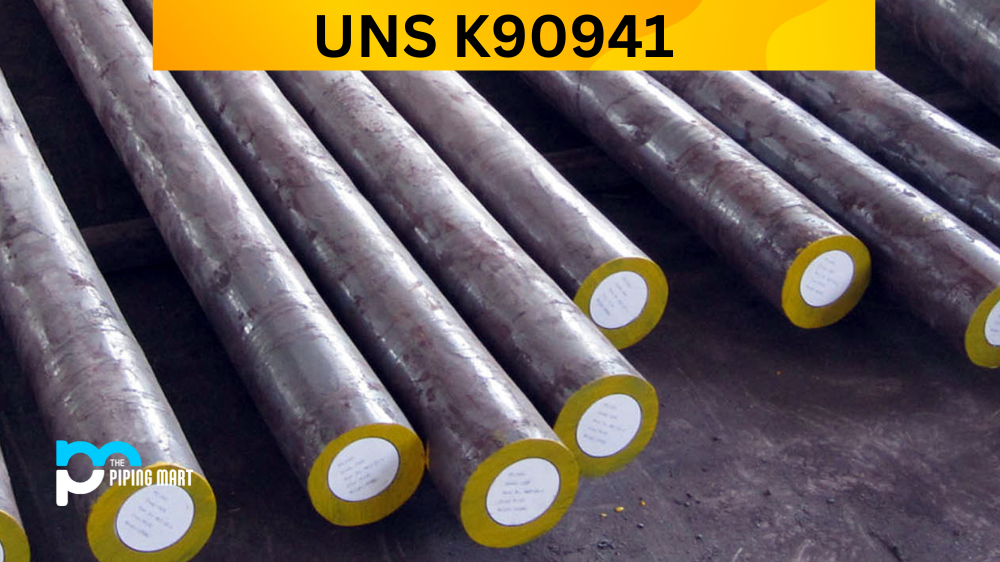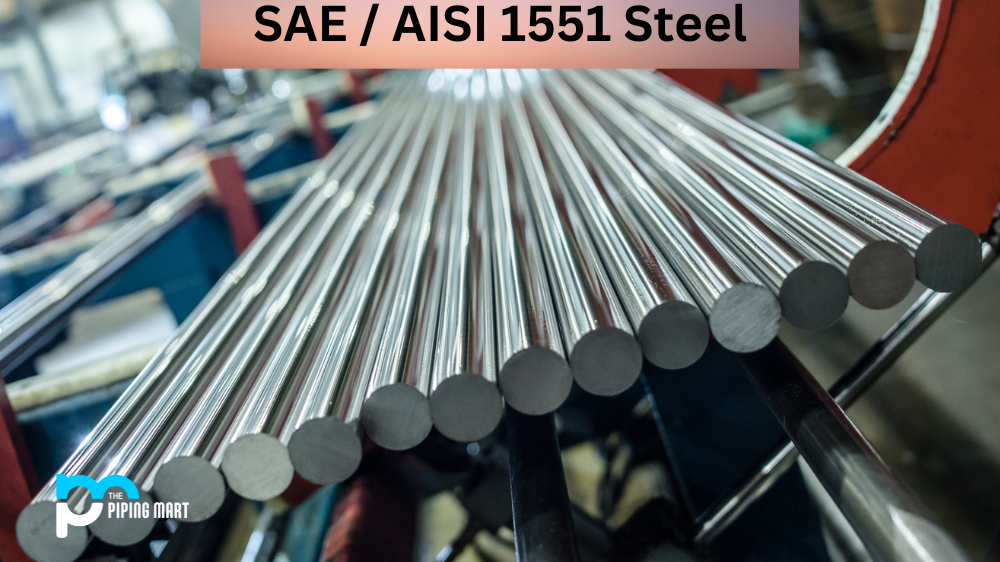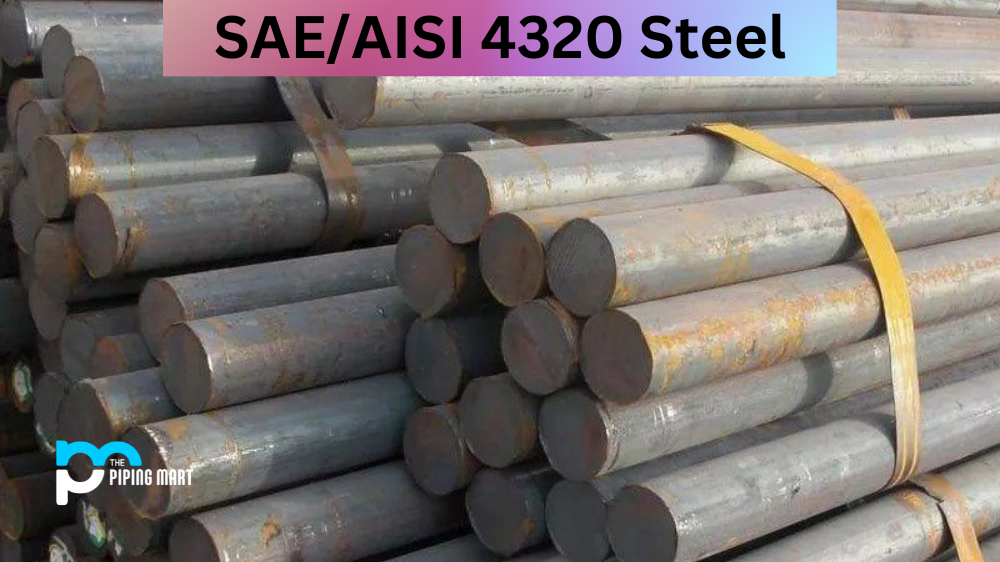Materials play a critical role in the manufacturing industry, and choosing the right material can make a significant difference. One of the materials that have gained popularity in the aerospace, defence, and petrochemical industries is AMS 5589. It is a high-performance material with excellent mechanical and physical properties, making it ideal for use in high-stress environments. This blog post will look at AMS 5589’s composition, physical and mechanical properties, uses, and more!
What is AMS 5589?
AMS 5589 (also known as 718 Inconel Alloy) is a term that might sound foreign to some, but in the aerospace industry, it holds significant importance. AMS 5589 is a specification that outlines the requirements for seamless or welded nickel alloy tubing, particularly for high-temperature applications. This standard provides manufacturers guidelines for producing tubing that can withstand extreme environments and harsh conditions. Regarding aerospace, reliability and durability are paramount, and implementing AMS 5589 material is essential to ensuring the safety and success of aircraft. Using AMS5589 tubing in planes and jets can make all the difference between a smooth flight and a catastrophic accident. As technology continues to push boundaries, specifications like these become ever more critical in aviation.
What Form is AMS 5589 Available at Piping Mart?
- Nut
- Bar
- Bolt
- Pipe
- Screw
- Tubing
- Valves
- Washers
- Flanges
- Fasteners
- Electrodes
- Stud Bolts
- Sheet Plates
- Pipe Fittings
- Forged Fitting
- Instrumentation Fittings
AMS 5589 Composition
AMS 5589 tubing is a nickel-chromium-cobalt-molybdenum alloy with excellent heat and corrosion resistance. It has a chemical composition of Nickel (50.5%), Chromium (20%), Iron (18%), Cobalt (10%), Titanium (1.5%), and Molybdenum (0.5%). Including these elements gives AMS 5589 excellent high-temperature strength, resistance to oxidation, and superior corrosion resistance in harsh environments.
| Element | Limiting Chemical Composition (%) |
| Nickel (plus Cobalt) | 50%-55% |
| Chromium | 17%-21% |
| Niobium (plus Tantalum) | 4.75%-5.50% |
| Molybdenum | 2.80%-3.30% |
| Titanium | 0.65%-1.15% |
| Aluminum | 0.20%-0.80% |
| Cobalt | 1% max |
| Carbon | 0.08% max |
| Manganese | 0.35% max |
| Silicon | 0.35% max |
| Phosphorus | 0.015% max |
| Sulfur | 0.015% max |
| Boron | 0.006% max |
| Copper | 0.30% max |
| Iron | Balance* |
AMS 5589 Physical Properties
AMS 5589 has a density of 8.12g/cm3 and a melting point of 1350-1390°C. Also, it has a coefficient of thermal expansion of 6.3×10−6/°C at 21°C and a thermal conductivity of 10.7 W/m-K. These physical properties make AMS 5589 ideal for high-temperature applications like gas turbines and jet engines.
| Density | Annealed: 0.296 lb/in3 |
| Annealed and aged: 0.297 lb/in3 | |
| Melting Range | 2300° to 2437°F (1260° to 1336°C) |
| Specific Heat at 21°C (70°F) | 0.104 Btu/lb-°F |
| Permeability at 200 oersted and 21°C (70°F) | Annealed material: 1.0013 |
| Annealed and aged material: 1.0011 | |
| Curie Temperature °C (°F) | Annealed material: <-320°F (<-196°C) |
| annealed and aged material: -170°F (-112°C) |
AMS 5589 Mechanical Properties
AMS 5589 has excellent mechanical properties such as high tensile strength, yield strength, and elongation. In the annealed condition, the material has a tensile strength of 760MPa, yield strength of 365MPa and an elongation of 45%. Also, the material has a hardness of 230HV in the annealed condition, which can be increased through heat treatments to meet specific application demands.
| Mechanical Properties | ||||
|
|
||||
Tensile Strength, Ultimate1375 MPa199000 psi Precipitation Hardened. Value at room temperature.Tensile Strength, Ultimate at Elevated Temperature1100 MPa160000 psi Precipitation Hardened prior to test; 650°CTensile Strength, Yield1100 MPa160000 psi Precipitation Hardened. Value at room temperature; 0.2% offset.Tensile Strength, Yield at Elevated Temperature980 MPa142000 psi Precipitation Hardened prior to test; 0.2% offset; 650°CElongation at Break25 %25 % Precipitation HardenedElongation at Break at Elevated Temperature18 %18 % Precipitation Hardened prior to test.; 650°C
AMS 5589 Uses
AMS 5589 is a high-performance material with great mechanical strength, thermal stability, and corrosion-resistant properties. It is, therefore, ideal for use in aerospace and defence industries, especially in high-temperature and high-stress environments. AMS 5589 is also used in the petrochemical industry, where it is used to make catalyst support grids and reactor vessels and for making tube supports and radiant screens.
AMS 5589 Hardness
AMS 5589 wire has excellent mechanical properties and hardness that can be optimized to meet specific application requirements. The hardness can be increased through heat treatments such as annealing, stabilization, and precipitation hardening. In the hardened condition, the material has a hardness of up to 395 HV, which is critical for applications that require high wear resistance.
AMS 5589 Heat treatment
Heat treatment is essential in producing and using AMS 5589 because it enables the material to acquire the desired mechanical properties. Solution annealing, stabilization treatments, and precipitation hardening are the most common heat treatment processes used for AMS 5589. Solution annealing is carried out at temperatures between 1065°C and 1120°C, followed by quenching to achieve maximum flexibility. Stabilization is then performed to restore the material’s flexibility lost during solution annealing, while precipitation hardening improves the hardness and increases the material’s strength.
Conclusion:
AMS 5589 tubing is a high-performance material used in the aerospace, defence, and petrochemical sectors, with excellent mechanical strength, thermal stability, and corrosion-resistant properties. This nickel-chromium-cobalt-molybdenum alloy exhibits high tensile strength, yield strength, and elongation, making it a popular choice in high-temperature and high-stress conditions. Moreover, AMS 5589 is known for its superior resistance to oxidation and corrosion, further enhancing its popularity in harsh environments. By utilizing heat treatments such as solution annealing, stabilization, and precipitation hardening, AMS 5589 can be optimized to suit specific applications. In summary, AMS 5589 is an outstanding material that can be a game-changer in various industries by providing unmatched performance and reliability.

Meet Bhavesh, a seasoned blogger with a wealth of knowledge and experience. From metal products manufacturing to retail, Bhavesh has a diverse background in various industries and is dedicated to sharing his insights and expertise with readers.




